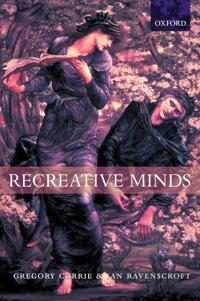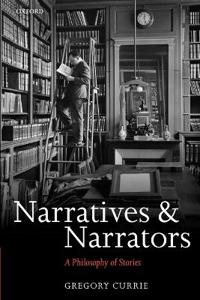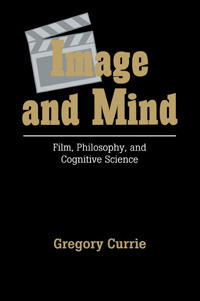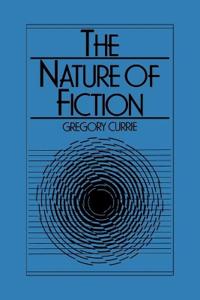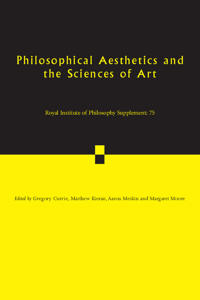Recreative Minds (Häftad)
avGregory Currie, Ian Ravenscroft
ISBN: 9780198238096 - UTGIVEN: 200210Recreative Minds develops a philosophical theory of imagination that draws upon recent theories and results in psychology. Ideas about how we read the minds of others have put the concept of imagination firmly back on the agenda for philosophy and psychology. Currie and Ravenscroft present a theory [...]
Narratives and Narrators (Häftad)
avGregory Currie
ISBN: 9780199645282 - UTGIVEN: 201202Narratives are artefacts of a special kind: they are intentionally crafted devices which fulfil their story-telling function by manifesting the intentions of their makers. But narrative itself is too inclusive a category for much more to be said about it than this; we should focus attention instead [...]
Image and Mind (Pocket)
avGregory Currie
ISBN: 9780521057783 - UTGIVEN: 200801This is a book about the nature of film: about the nature of moving images, about the viewer's relation to film, and about the kinds of narrative that film is capable of presenting. It represents a very decisive break with the semiotic and psychoanalytic theories of film which have dominated discuss[...]
The Nature of Fiction (Häftad)
avGregory Currie
ISBN: 9780521090988 - UTGIVEN: 200811This important book provides a theory about the nature of fiction, and about the relation between the author, the reader and the fictional text. The approach is philosophical: that is to say, the author offers an account of key concepts such as fictional truth, fictional characters, and fiction itse[...]
Philosophical Aesthetics and the Sciences of Art (Pocket)
avGregory (EDT) Currie, Matthew (EDT) Kieran, Aaron (EDT) Meskin
ISBN: 9781107654587 - UTGIVEN: 2015-03Musical listening, looking at paintings and literary creation are activities that involve perceptual and cognitive activity and so are of interest to psychologists and other scientists of the mind. What sorts of interest should philosophers of the arts take in scientific approaches to such issues? O[...]

